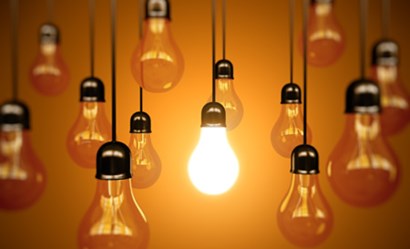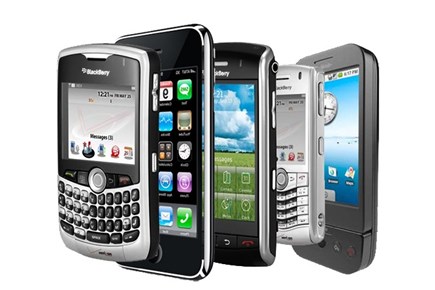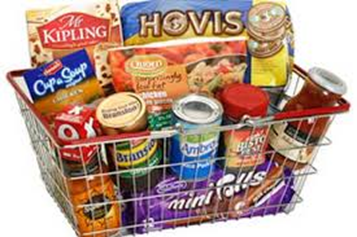Loss of Critical Infrastructure

Lead Agency in Merseyside – this varies depending on the nature of the emergency and its impacts.
WHAT IS CRITICAL INFRASTRUCTURE?
Critical Infrastructure is the name given to all of the different essential services which we rely on as part of a modern society and the economy. The UK’s critical infrastructure is made up of electricity, water, gas, oil/fuel, transport, telecoms, food, health and financial services.
Because of our increasing reliance on utilities such as electricity, water and gas for so many aspects of our lives, even localised losses can have a significant impact on those affected.
RISK IMPACTS
The predicted impacts could include:
- People exposed to poor sanitation and lack of drinking water;
- Homes without heating and limited ability to heat food and water;
- Limited ability to keep food cold or frozen;
- No ability to get fuel from filling stations;
- People unable to get cash from cash machines or make card purchases;
- Limited telecommunications (including mobile phones).
CONSEQUENCES
The consequences of a wide scale incident could include:
- Disruption to essential services and activities;
- Endangerment of vulnerable people;
- Financial impact on businesses;
- Civil unrest;
- Increased demand on emergency services;
- Travel disruptions;
- Disruption to business and normal home life.
WHAT ARE WE DOING IN MERSEYSIDE?
- Working with the utility companies to manage supply interruptions;
- Production of multi-agency plans to manage long-term utilities outages;
- Identification of vulnerable people who will need special treatment in the event of utilities outage.
WHAT CAN YOU DO?

BEFORE
- Some outages come with forewarning. If this is the case consider how you can be prepared by following the advice provided by SP Energy Networks and Electricity North West.
- Prepare an Emergency Grab Bag containing a torch and spare batteries (or wind up torch), a battery operated or wind up radio and an old-fashioned corded telephone which you can plug in, as cordless phones may not work in the event of a power cut;
- Register with your utility provider if you consider yourself to be vulnerable - SP Energy Networks 'Application to join the Priority Services Register';
- For details of free local services or low cost services offered to customers who are elderly, disabled or need a little extra help, download SP Energy Networks leaflet titled 'Bringing you a little extra help';
- Look out for elderly neighbours and ensure they are prepared for a possible power cut.
DURING
- Check your trip switch and also check with neighbours to see if they have also lost power;
- Call 105 to report or get information about power cuts in your local area;
- Call 105 if you spot damage to electricity power lines and substations that could put you, or someone else, in danger. If there is a serious immediate risk, you should also call the emergency services on 999;
- Call your electricity supplier for any other issues, for example, if you are having metering or boiler problems;
- Remember never to put yourself in danger and to alert the emergency services if a dangerous situation arises;
- Where possible, consider making alternate arrangements to stay with family or friends if you are impacted by the power cut;
- Take care whilst using candles, naked flames and portable heaters. Never leave lit candles in unoccupied rooms or with unsupervised children or animals;
- Avoid opening the fridge or freezer door to protect the food;
- Remember that many modern home phones, particularly cordless ones, may not work during a power cut:
If your phone plugs into the wall, it will work during a power cut however cordless phones will not work as their base station needs power. Mobile phones will work as long as masts are working. - Leave one light switched on so you know when the power returns;
- Limit the use of your laptop or smart phone to retain battery power;
- Keep an eye on any elderly or vulnerable neighbours;
- Unplug any sensitive appliances until your power comes back on.
AFTER
- Do not turn on your electricity if you have been flooded. Get it checked out by a qualified technician;
- Do not touch any electrical power lines and keep your family and pets away from them.
BEFORE
- Ensure all gas appliances are checked annually by a Gas Safe registered engineer.
DURING
- If gas is lost for a prolonged period of time, being prepared with alternative heating can make the situation easier;
- to report poor gas pressure or a loss of gas supply call the National Gas Emergency Number 0800 111 999;
- to conserve existing heat, use one or two rooms. Keep doors closed to keep the heat in;
- keep an eye on any elderly or vulnerable neighbours;
- If it is a local issue, watch the local news and tune into BBC Radio Merseyside online (frequency 95.8FM, 1485MW, DAB) for advice.
FIVE EASY STEPS IF YOU SMELL GAS
- Turn off all gas appliances and the gas supply at your meter;
- open doors and windows to ventilate your property;
- extinguish all naked flames, e.g. cigarettes and candles;
- do not turn electrical appliances on or off, this includes light switches;
- call the National Gas Emergency Number 0800 111 999.
AFTER
- Do not turn on your gas if you have been flooded. Get it checked out by a qualified technician;
- If in doubt contact your supplier for advice.
BEFORE
- Register with your water supplier if you consider yourself or a family member to be vulnerable. Your water supplier can help when supply is interrupted;
- Prepare by keeping a supply of water that will meet your family’s needs, including your pets, during an emergency.
DURING
- Check if your neighbours have lost services. If others are affected this will make a difference to what you should do;
- Contact your water supplier to report the problem and ask for information;
- Turn off all the taps. If you have turned a tap on and no water has come out, make sure it is turned back off again. This is important because when the supply returns, it will gush water out;
- Turn off any central heating or electric immersion heaters;
- Don’t use your washing machine or your dishwasher;
- Don't flush the toilet;
- Use your supply of drinking water until the water is back on;
- If it is a local issue, watch the local news and tune into BBC Radio Merseyside online (frequency 95.8FM, 1485MW, DAB) for advice;
- Be on alert for bogus callers posing as utility company workers. Always ask to see a Company Identification Card.
AFTER
- Contact your supplier for advice if your neighbours water supply has returned and you are still having problems;
- Turn your taps on and let the water run until it is running clear;
- Replace any supplies of water that have been used.

BEFORE
- Register with your provider if you consider yourself to be vulnerable;
- Have a non-mains powered phone available for use in the event of a power failure and keep a mobile phone charged and ready for use.
DURING
- Check if your neighbours have lost services, this will make a difference to what you should do next;
- Contact your supplier to report the fault and ask for any further information;
- Listen on battery powered or wind up radio for announcements in your area;
- Be on alert for bogus callers posing as utility company workers. Always ask to see a Company Identification Card.
AFTER
- If you are still having problems or are in doubt, contact your supplier for advice.

BEFORE
- Consider keeping an emergency food supply with your Emergency Grab Bag:
- Store at least a three-day supply of non-perishable/tinned food and drinking water;
- Choose foods your family will eat;
- Remember any special dietary needs;
- Avoid foods that will make you thirsty;
- Choose salt-free crackers, whole grain cereals and canned foods with high liquid content;
- Be sure to include a manual can opener and eating utensils.
- Listen carefully to announcements in the media, heed warning and advice;
DURING
- Look out for elderly relatives or neighbours who may need help;
- Use your emergency food supply and supplies your Emergency Grab Bag (if you have one);
- Watch the national/local news and tune into BBC Radio Merseyside online (frequency 95.8FM, 1485MW, DAB) for advice.
AFTER
- Replace any emergency food supplies that have been used.
